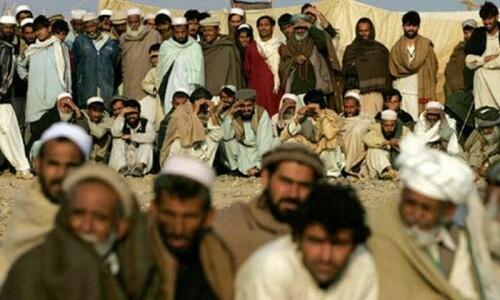WASHINGTON: Pakistan’s struggle to service its debt is a disaster for the country, but it’s not very good for the rest of the world either, says economist Michael Pettis.
Mr Pettis, a senior fellow at Carnegie Endowment, Washington, and a professor of finance at Guanghua School of Management at Peking University in Beijing, made this argument while responding to a series of tweets by Atif Mian, a professor of economics, public policy and finance at Princeton University, on Pakistan’s debt position and its consequences for the economy.
Mr Mian warned in his tweets that the Pakistani economy was near collapse and needed/immediate course correction. “To thump your chest and say, ‘see we have not defaulted’ means nothing if you continue to ignore the underlying crisis,” he wrote. “The only thing worse than indecisiveness in the face of a crisis is incompetence.”
Mr Pettis, however, urged the creditors to review their policies as well because the debt burden was suppressing Pakistan’s contribution to global demand by effectively converting its demand into unwanted global savings.
“Instead of recycling them in the form of imports, Pakistan’s export earnings must be recycled in the form of debt repayments,” he wrote.
He explains that the present situation may be good for Pakistan’s creditors, but it’s bad for those who produce the goods that Pakistan might have imported.
“Pakistan’s struggle to repay debt doesn’t just make its own workers and businesses worse off, but also workers and businesses abroad,” he adds.
Another economist, who identifies himself only by his first name Dennis, warns that “Pakistan is heading towards sovereign default. The consequences of that will not be good for anyone.”
Lorenzo Carrieri, a financial analyst, says that Pakistan needs debt relief from external creditors. “With such a debt overhang, getting an IMF programme which carries painful adjustments in terms of currency devaluation, wage deflation and fiscal consolidation only to pay back creditors is a dog that bites its tail,” he warns.
Mr Pettis makes a similar argument, saying that when a country clearly cannot service its debt, the debt should be quickly restructured and written down.
“This not only benefits businesses and workers in the debtor nation but also in the creditor nations. Squeezing an economy to repay debt makes nearly everyone worse off,” he writes.
Mr Pettis explains that Pakistan may be a small economy whose contribution to global demand is small, but now a rising number of developing countries find themselves struggling to service their external debts. “And they become an increasingly large drag on the economies of the rest of the world.”
Mr Pettis suggests that instead of worrying about which creditors are coming out ahead of which other creditors, “creditor nations should move more quickly to write down the debts owed to them. This automatically benefits their real economies, even if it hurts their financial sectors.”
Published in Dawn, May 26th, 2023
















































